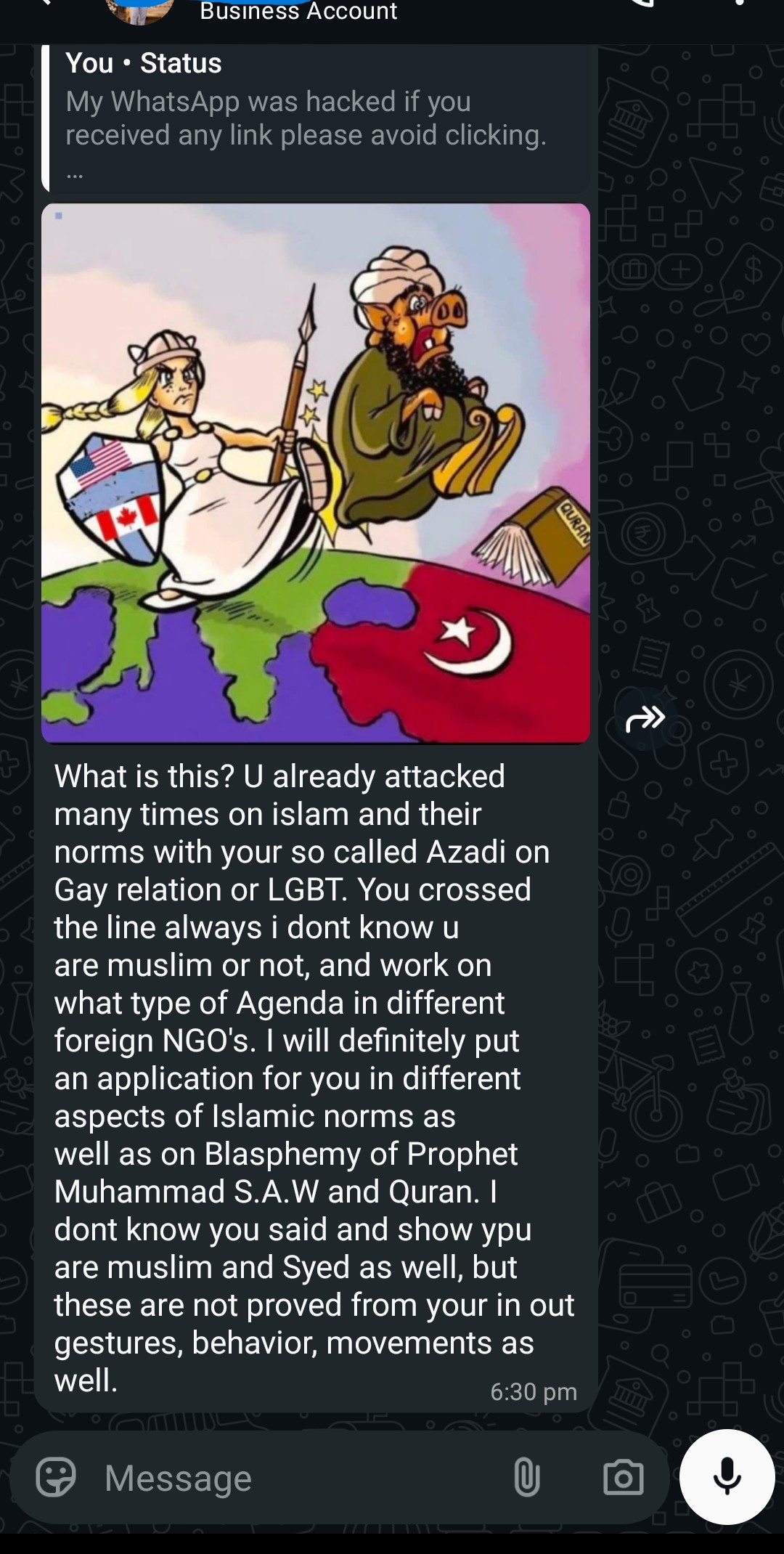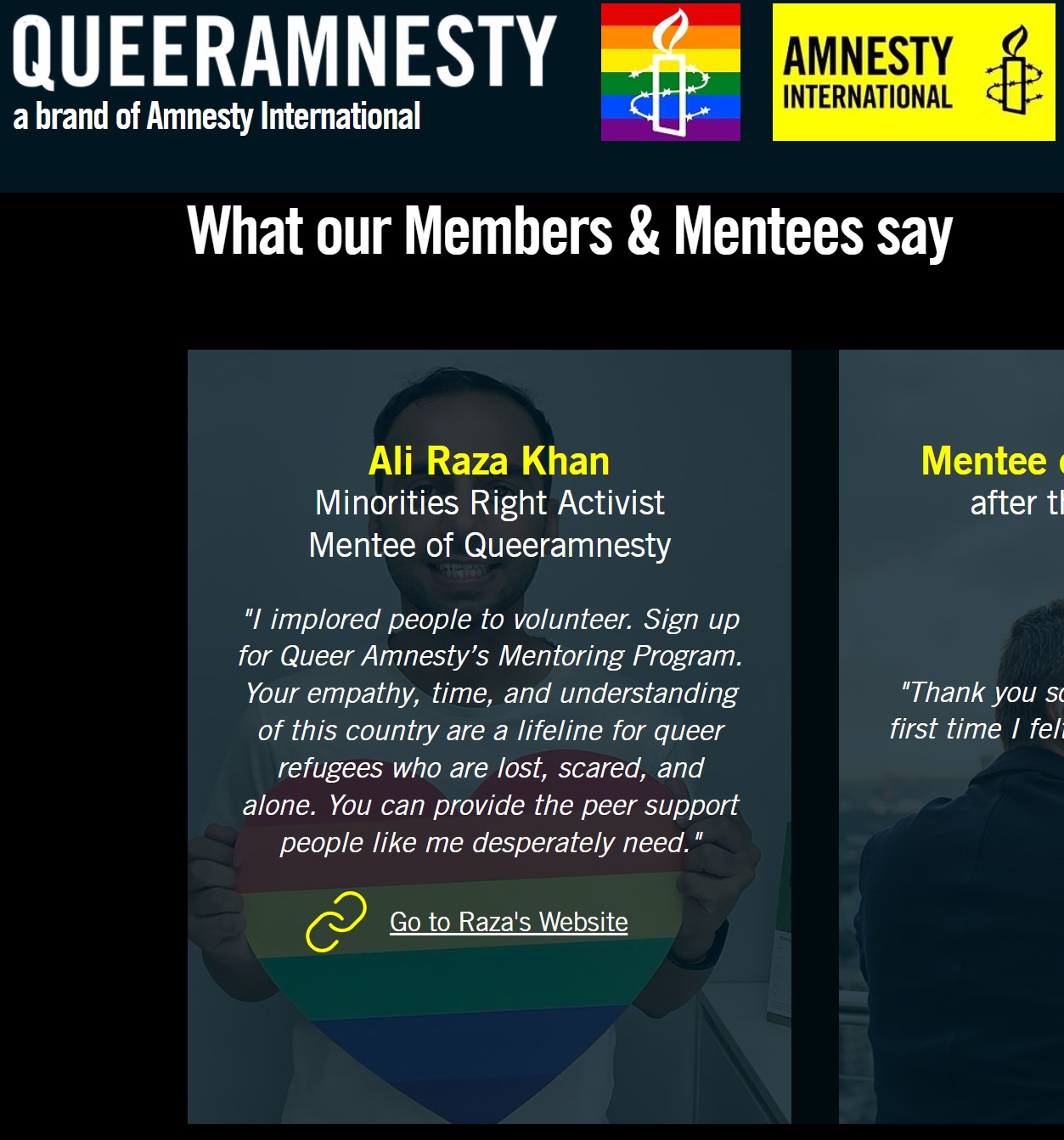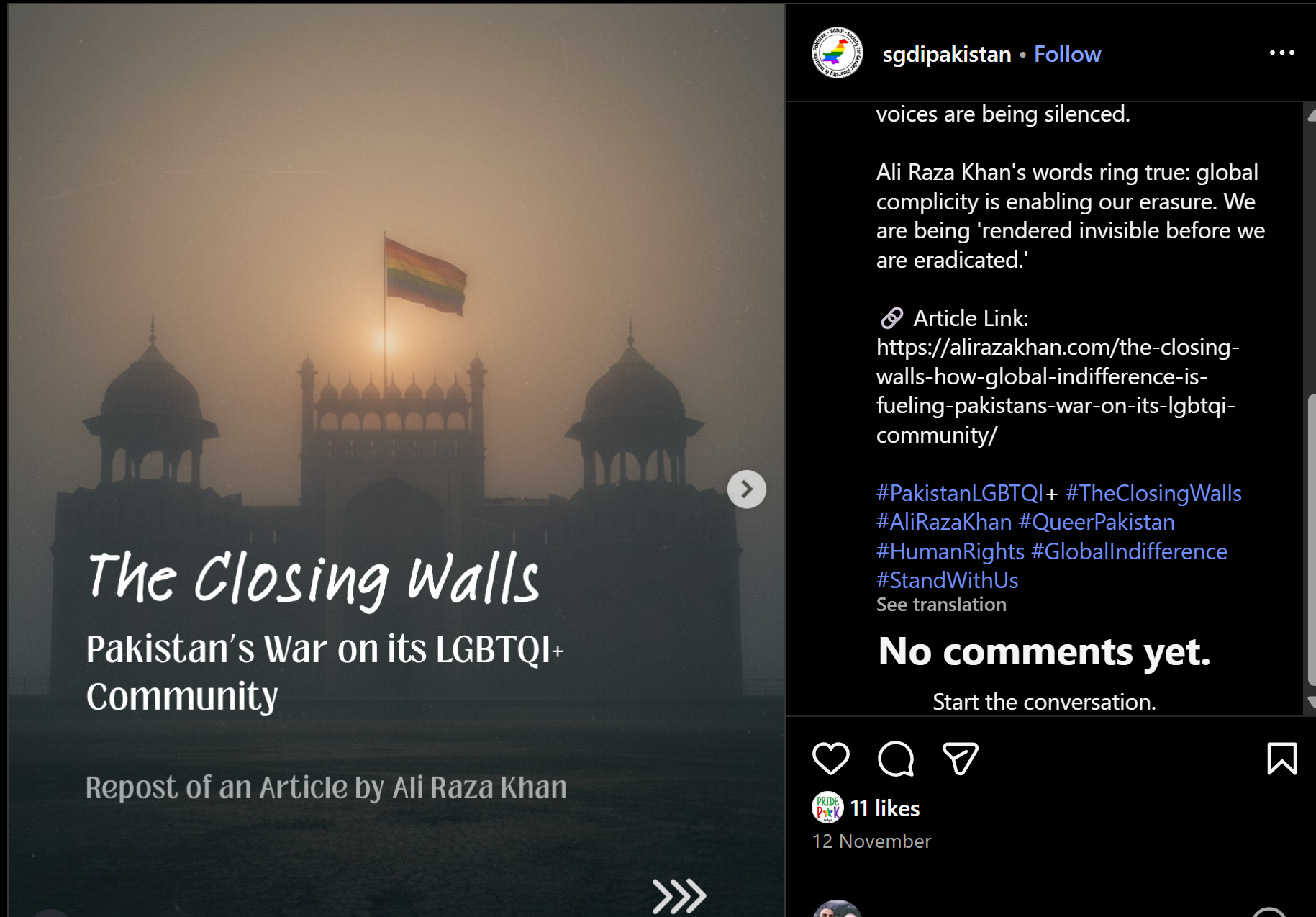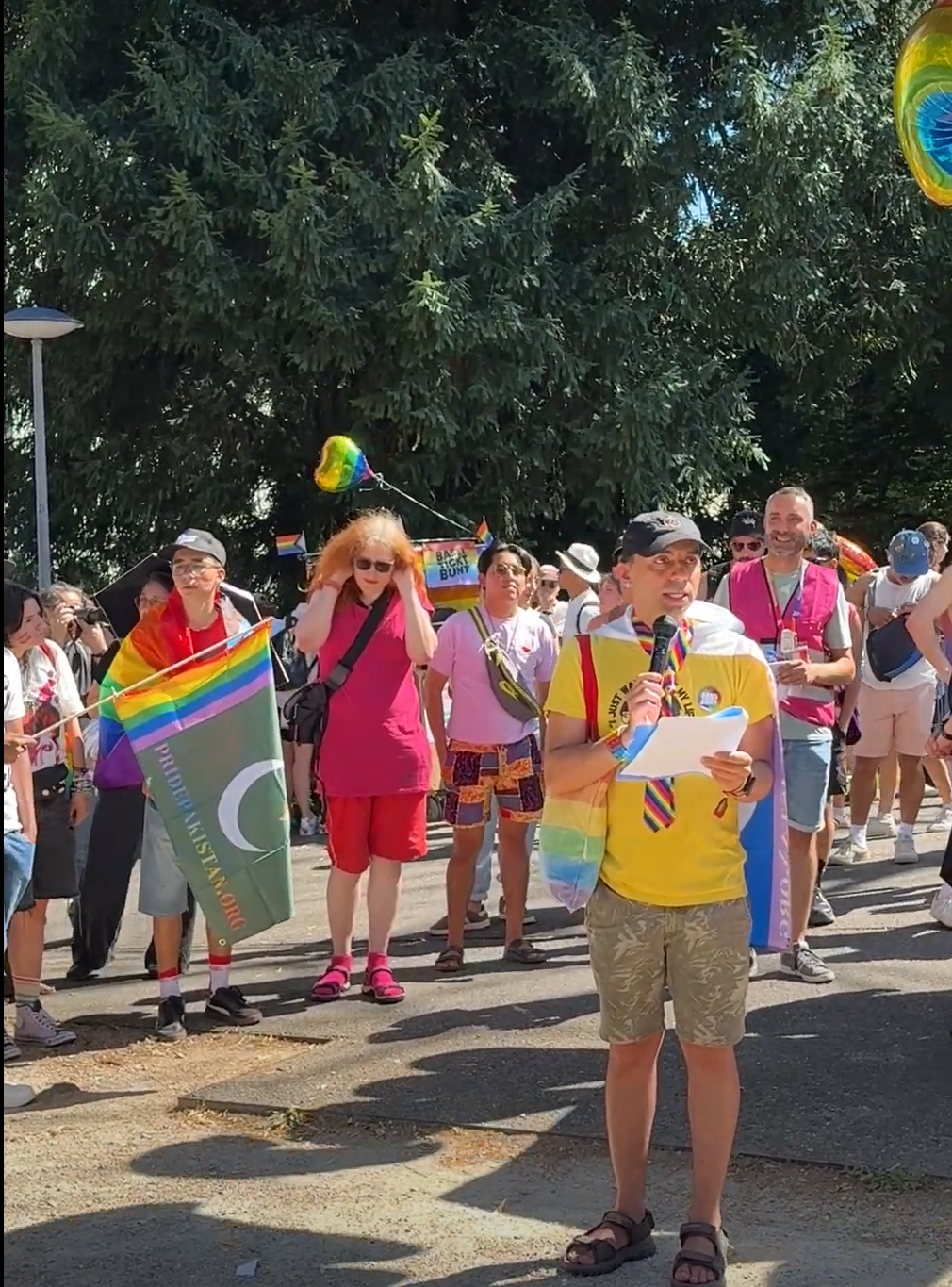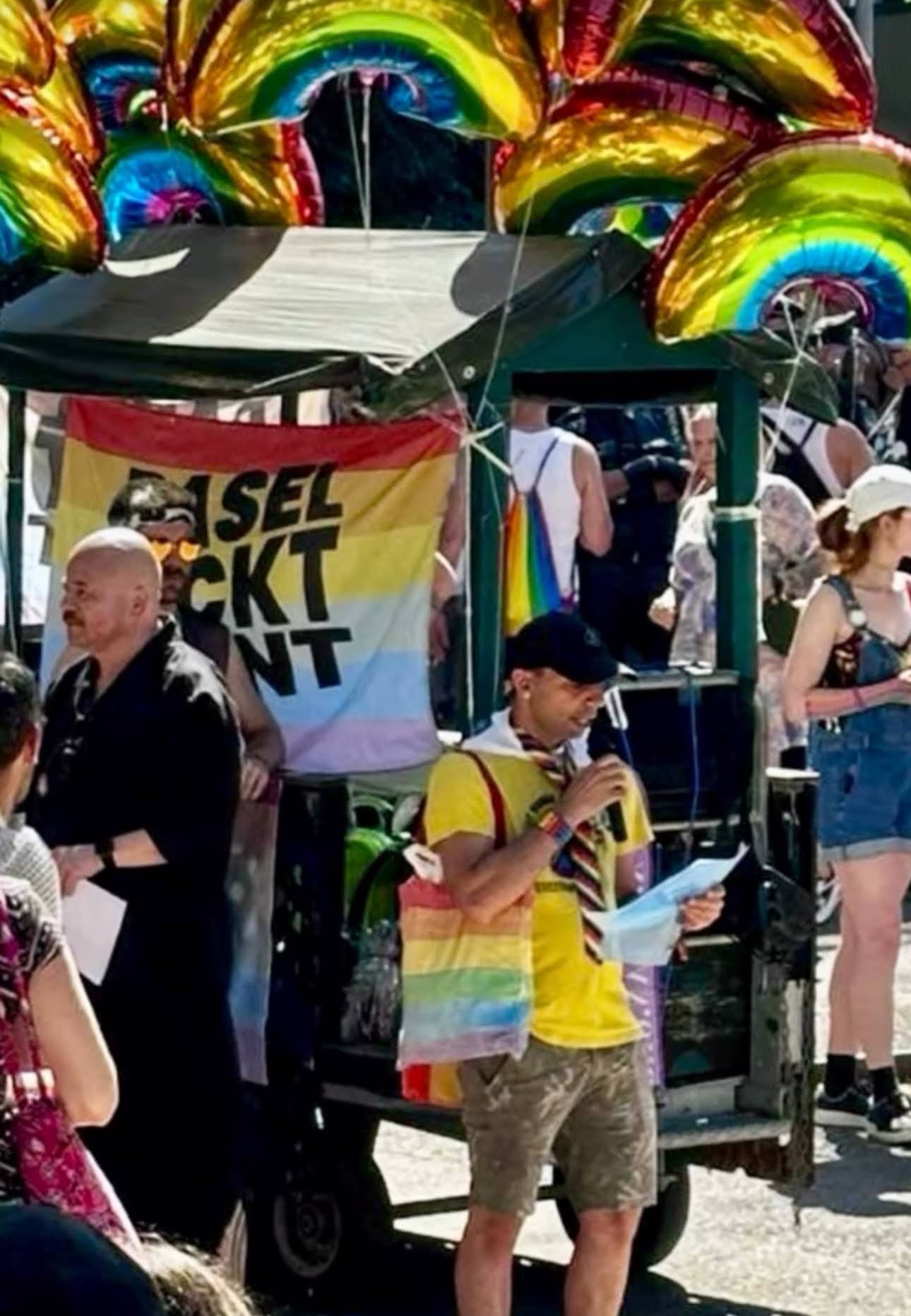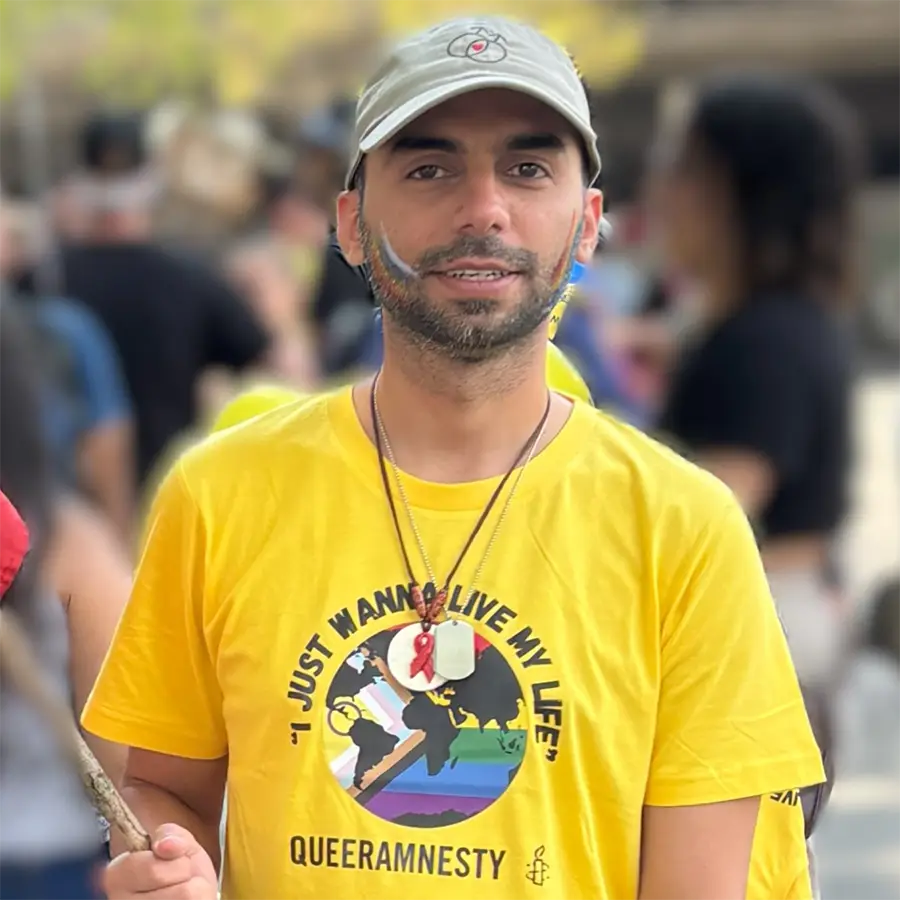Tag: LGBTQIA+ Rights Pakistan
-
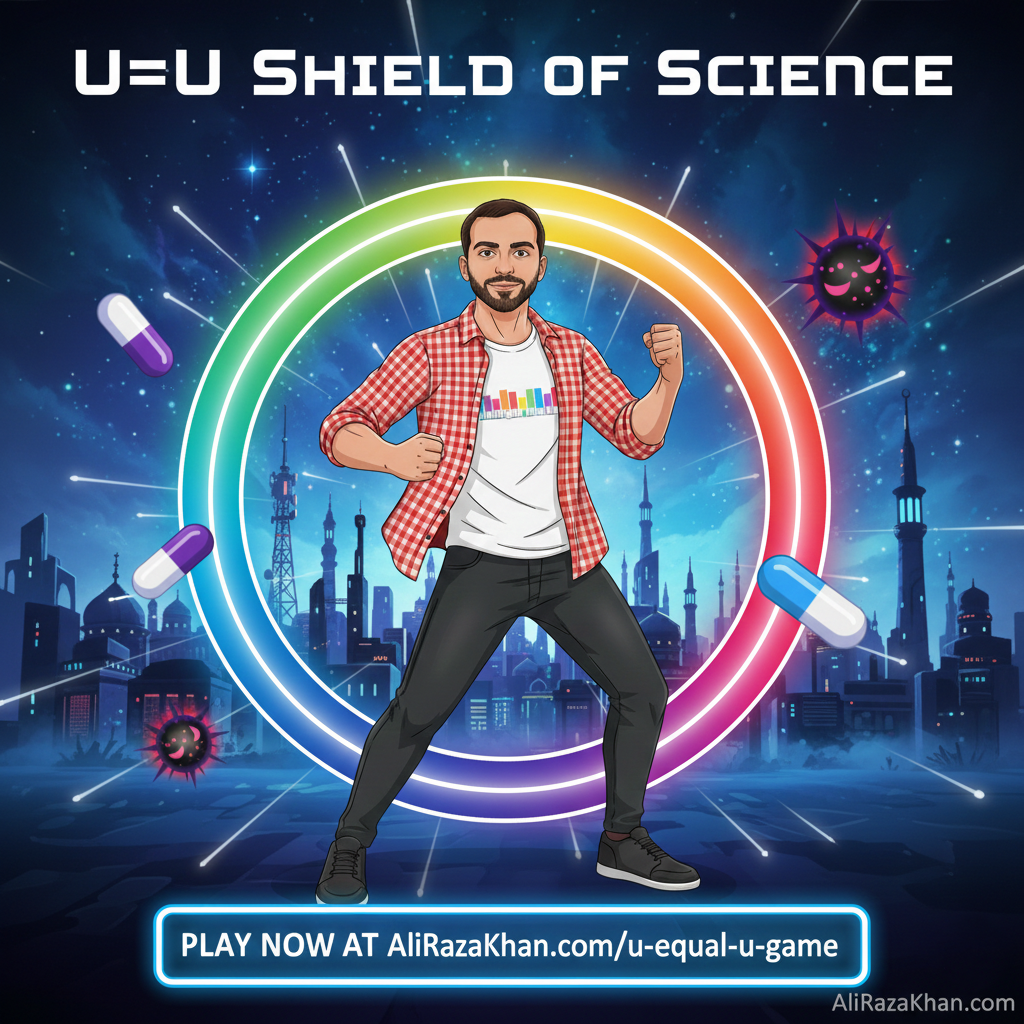
Play U=U Shield of Science: A New Interactive Artivism Experience by Ali Raza Khan
As a gay individual living with HIV and a dedicated activist in Pakistan, my work has always sat at the intersection of research, activism, and art. Today, I am proud to announce the latest piece of my digital “Artivism” portfolio: The U=U Shield of Science Game. In a country where HIV stigma is often fueled…
-
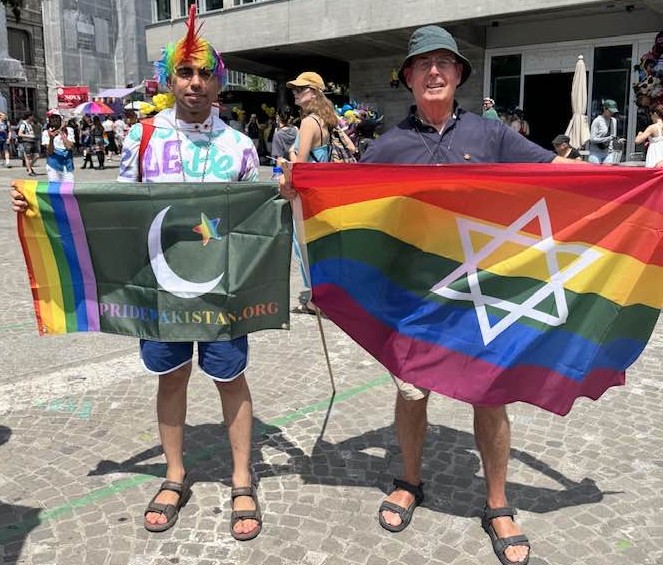
Beyond Borders: When Pakistan and Israel Meet at Pride
There are moments in life that feel like more than just a photograph. They feel like a blueprint for the future. Recently, at Pride Geneva, I had the honor of standing alongside Leo from Queers Against Antisemitism (QgA). In my hand, I held the Pakistani Muslim rainbow flag; in his, the Jewish rainbow flag. In…
-
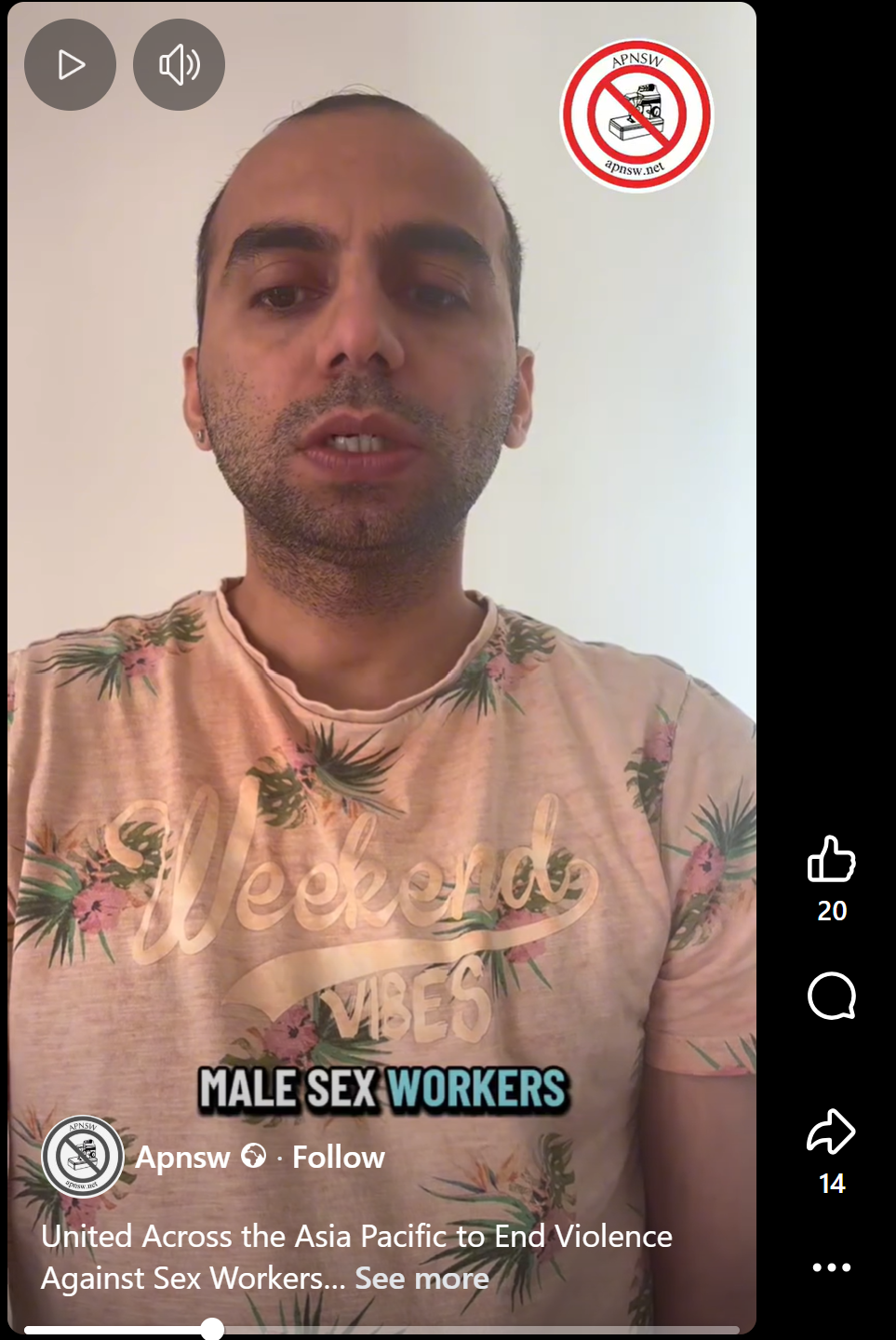
Standing in Global Solidarity: My Message for the International Day to End Violence Against Sex Workers
I am proud to share that my voice has been featured alongside fellow activists from across the Asia Pacific in a powerful new campaign by the Asia Pacific Network of Sex Workers (APNSW). To mark the International Day to End Violence Against Sex Workers, we have come together to send a unified message to the…
-
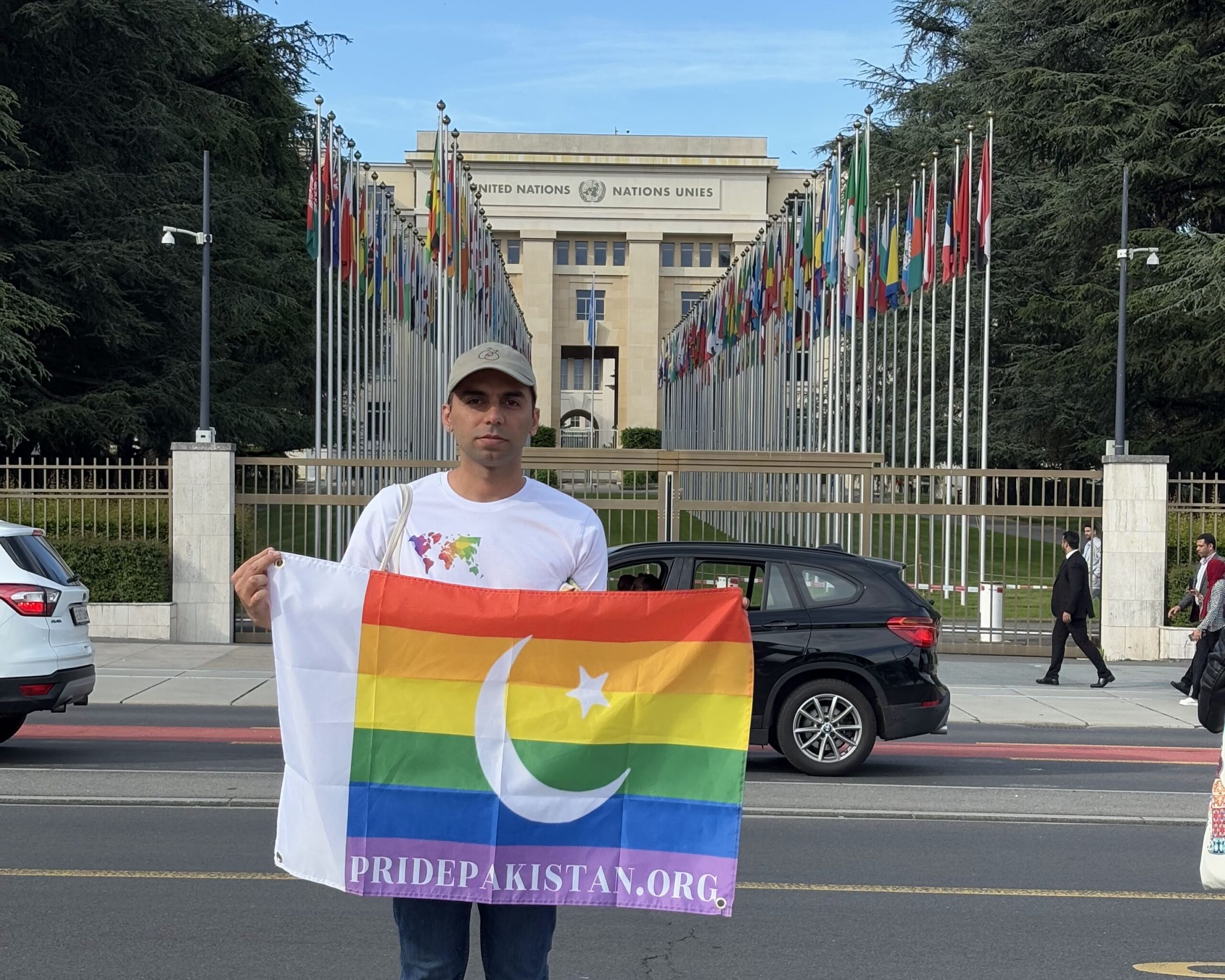
The Closing Walls: How Global Indifference is Fueling Pakistan’s War on its LGBTQI+ Community
By Ali Raza Khan Ali Raza Khan is a steering committee member of TheYouthPACT, an HIV-positive gay activist, and lives with PTSD. There’s a particular kind of silence that haunts you when you live at the intersection of identities the world wishes to erase. As a gay man, as an HIV-positive person, as an activist…
-
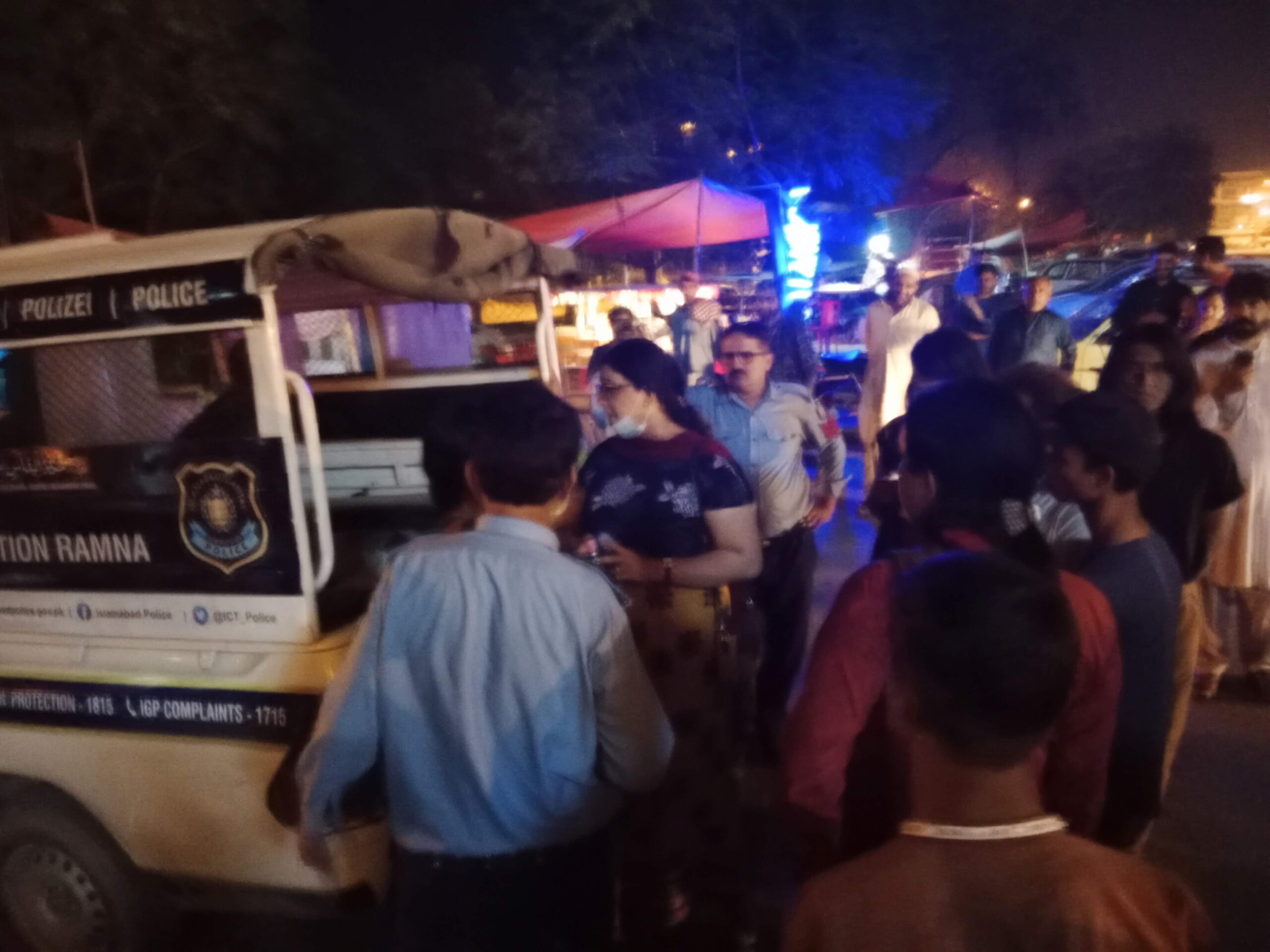
Living in Fear: The Struggles of LGBTQ+ Individuals in Pakistan
As an HIV-positive gay activist from Pakistan, my life has been a constant battle against societal norms and prejudices. My name is Ali Raza Khan, and I have faced numerous challenges simply for being who I am. Recently, I found myself in Islamabad, staying with my fellow colleague Nayab Ali, a transgender police officer and…
-
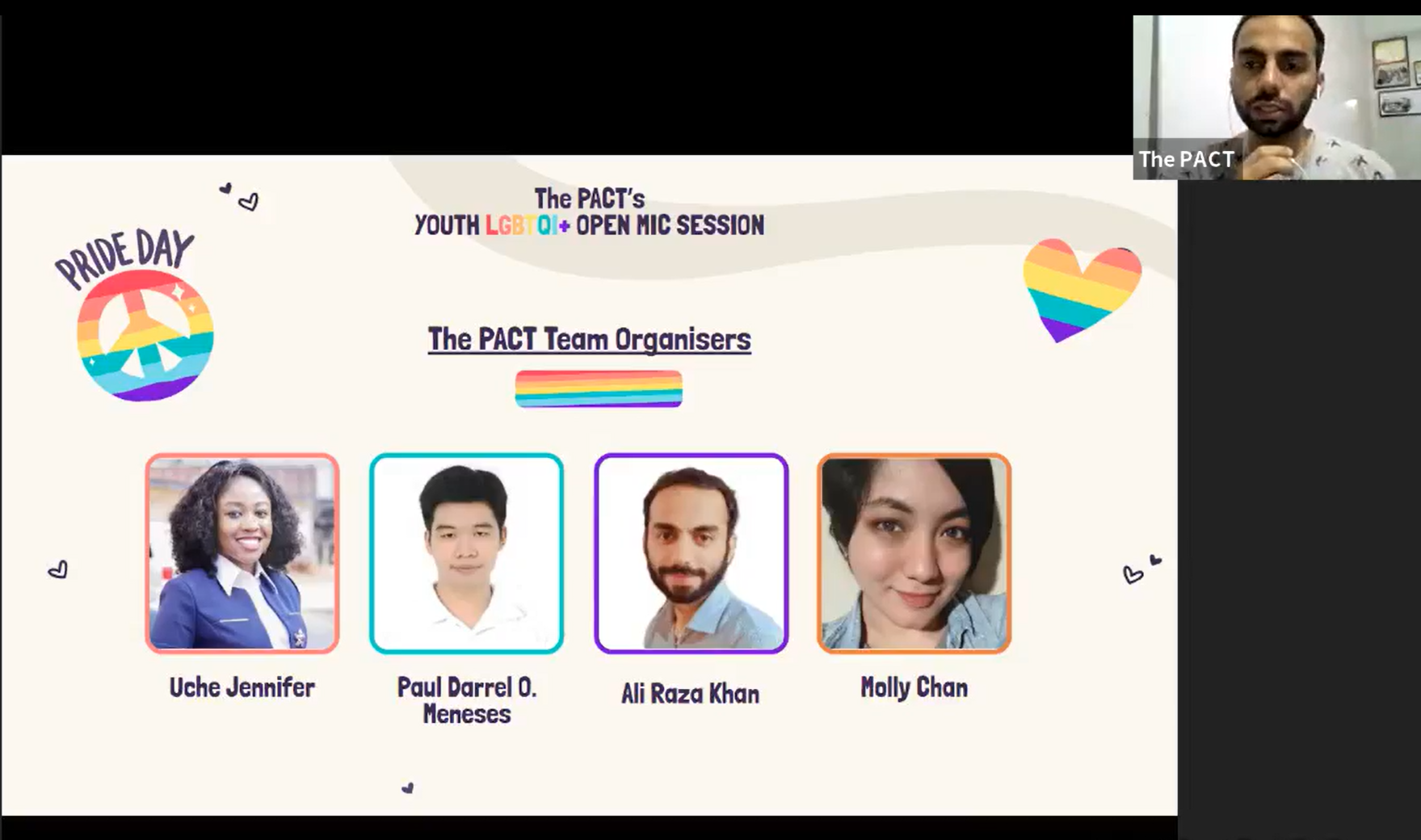
Pride in the Post-Pandemic World: A Youth LGBTQI+ Open Mic Session by The Youth PACT Organisation
On June 18th, 2022, TheYouthPACT.org hosted an impactful “Youth LGBTQI+ Open Mic Session” titled “Pride in the Post-Pandemic World.” As a volunteer coordinator for the advocacy working group at TheYouthPACT.org, I, Ali Raza Khan from Pakistan, had the privilege of co-hosting this session alongside Paul Darrel Omenesis from the Philippines. The session commenced with an…

